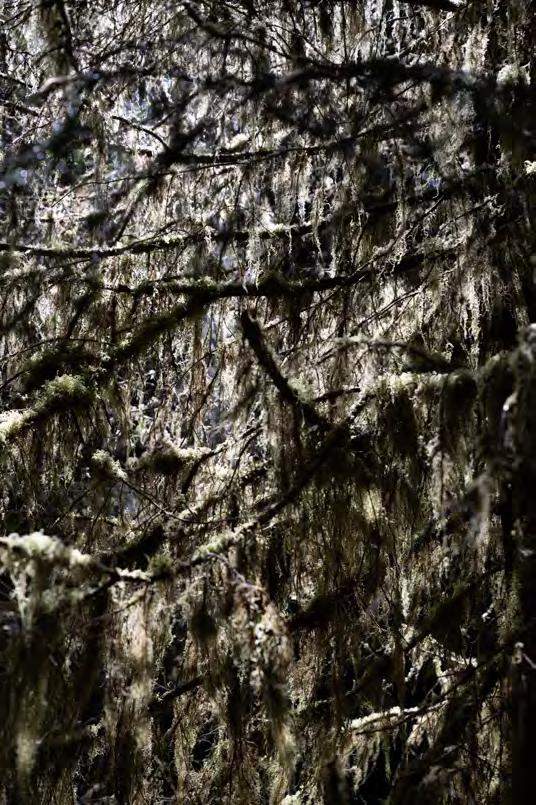
1 minute read
A Grateful Circle
In , Powers describes Patricia The Overstory Westerford’s passion for trees, as she testifies in court on the importance of protecting old-growth forests. Westerford’s character is a scientist driven by deep-rooted arboreal adoration. “Love for trees pours out of her—the grace of them, their supple experimentation, the constant variety and surprise. These slow, deliberate creatures with their elaborate vocabularies, each distinctive, shaping each other, breeding birds, sinking carbon, purifying water, filtering poisons from the ground, stabilizing the micro-climate. Join enough living things together, through the air and underground, and you wind up with something that has intentions.”
Westerford’s scientific understandings of forests meld with the aesthetic and spiritual feelings of wonder they give her. Within this space, where facts and feelings agree with one another, gratitude flourishes.
Advertisement
This is the secret behind Indigenous wisdom. Kimmerer writes of the Thanksgiving Address that Indigenous cultures view as their Pledge of Allegiance. “The Thanksgiving Address is at heart an invocation of gratitude, but it is also a material, scientific inventory of the natural world...each element of the ecosystem is named in its turn, along with its function. It is a lesson in Native science... Recognizing abundance rather than scarcity undermines an economy that thrives by creating unmet desires. Gratitude cultivates an ethic of fullness.” This is the mindset that carries “good manners” over to the natural world. Where we say “please” and “thank you” to the trees because we scientifically understand how they endure and emotionally feel for them. Gratitude exists when logic lets love in.
Powers writes of Westerford’s direct tree-preciation, “She addresses the cedar, using words of the forest’s first humans. ‘Long Life Maker. I’m here. Down here.’ She feels foolish, at first. But each word is a little easier than the next.
‘Thank you for the baskets and the boxes. Thank you for the capes and hats and skirts. Thank you for the cradles. The beds. The diapers. Canoes. Paddles, harpoons, and nets. Poles, logs posts. The rot-proof shakes and shingles. The kindling that will always light...’ Each new item is release and relief.”
In the decades to come Powers may be revered as a climate-fiction novelist before his time, but let us not forget the Indigenous wisdom that shaped a language and culture that has always been living symbiotically amongst the trees, “trees that were born before Columbus sailed,” Kimmerer reminds us.










